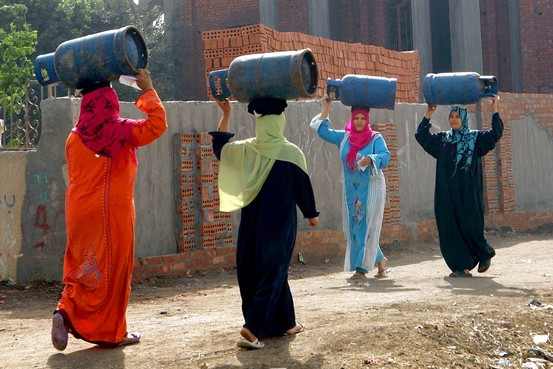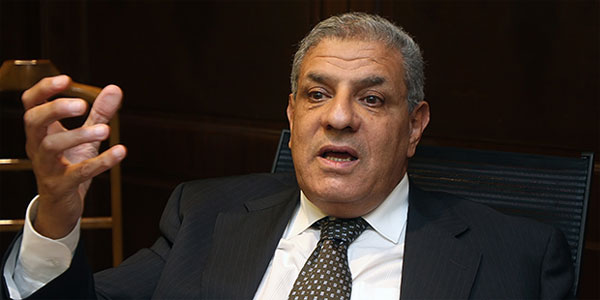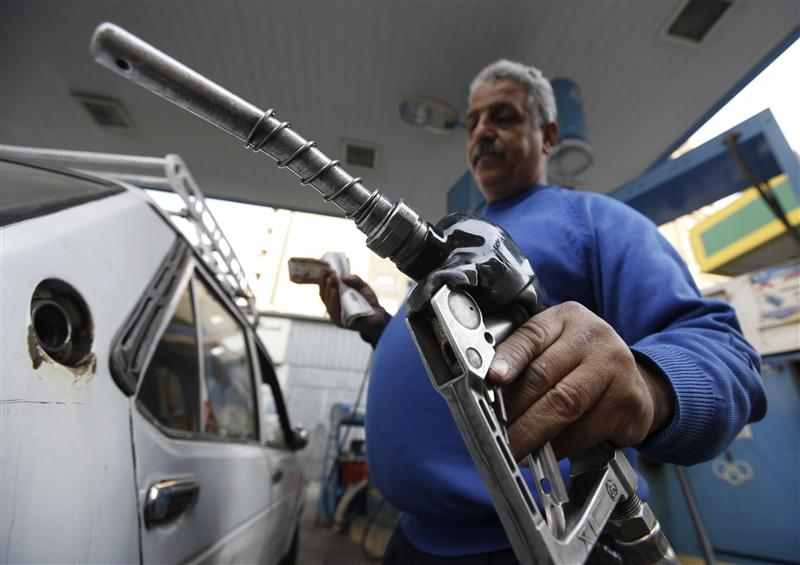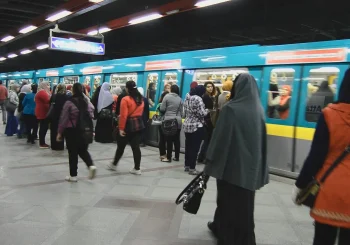The theme of energy subsidies in Egypt has long been a subject of contentious debate for both economic and political reasons. Successive Egyptian governments have always been reluctant to alter the core structure of the subsidies since it may result in social unrest and antagonism among the poorer classes. It has always been perceived as part of the social contract between the people and the government.
From an economic point of view, energy subsidies represent a huge financial and fiscal burden on Egyptian authorities and acts as a hurdle for major investments in the sphere of social and human development. Additionally, the structure of energy subsidies in Egypt benefits the economically advantaged groups rather than the poorer classes in the society through major energy subsidies for the likes of energy intensive industries, well-off urban residents and expensive vehicles.
The economic impact of energy subsidies goes beyond the budget, as low energy prices distort economic decisions by encouraging excessive energy consumption, both now and in the future, as excessive investments are made in sectors that are intensive users of energy inputs. Energy subsidies reduce the incentive for energy efficiency, leading to excessive energy consumption, which contributes to pollution and environmental degradation, and for any level of production, lower export revenues. The subsidies distort investment decisions.
As firms make decisions based on the subsidized prices, they direct investment to sectors that heavily use the under-priced energy products. The latest available statistics show that the industrial sector accounts for 39% of the final energy consumption in Egypt. Transport and residential/services sectors account for 34% and 27% respectively. The latter reasons urge the government to reform the whole subsidy system in order, according to their claims, achieve social justice and better livelihood for the poor.
Egypt’s total primary energy demand has grown at an average annual rate of 4.5% during the last two decades. This rather high growth is linked to strong economic growth and is particularly reflected in the rapid increase in demand for electricity and transport services. The increase in energy demand has been met primarily by increased use of fossil fuels, leading to the high energy and carbon intensity of the economy. Undoubtedly, Egypt suffers from an energy problem, one could easily observe the consistent power shortages over the past couple of years.
Price Increase and Anger

Yet, over the past couple of weeks a wave of anger swept across Egypt as a consequence of rising energy prices. The price of diesel is now at LE1.80 per liter, a 64-percent increase from the previous price of LE1.10, while 80-octane gasoline rose to 1.60 pounds per liter, a 78-percent increase from LE0.90. Natural gas for vehicles, on which most taxis rely, is now priced at LE1.10 per cubic meter, a whopping 175-percent increase from LE0.40.
Early last month, taxi drivers in several cities reportedly protested the price hikes, blocking a number of roads in the capital and in other governorates. Increasing by 40 percent is the price of 92-octane gasoline, which is consumed by most average vehicles, now at LE2.60 per liter from a previous LE1.85.
Though a significant increase, it is not wholly out of reach for many car owners. What is likely the least consumed petroleum product and one mainly used for more luxury vehicles, 95-octane increased by a meager 6.8 percent, to LE6.25 from LE5.85.
Subsidies on this product were all but lifted in November of 2012 and many have since made the switch to the lower performance 92-octane fuel, increasing demand for the product and for a time, causing shortages at some gas stations. Until now it is unclear whether the government will remove energy subsidies from the energy-intensive industries, which represent a major share of the whole subsidy.
A Petroleum Ministry official had said that the price hikes will, for now, not affect the natural gas provided to factories, adding that this will happen after the use of coal becomes effective – in itself a controversial and highly criticized decision.
The Political Side

If the government claims the removal of subsidies is for the poor peoples’ own benefit, where is the problem then?
I believe the issue has two major dimensions one is political and the other is related to pure economics and technicalities. The energy subsidy is a political issue in the first place. The problem with the significant decision taken by the government is that it did not go through any sort of public discussion among stakeholders.
In the absence of an elected parliament, one would expect such a sensitive matter to be publicly discussed in depth in the media. One would also expect the government to consult various stakeholders in order to reach some sort of consensus over the decision. Information campaigns would have been of significant importance in order to inform the public about the benefits and costs of the decision. Isn’t this democracy that Egypt aspires?
In fact, what happened is, as always the case with Egyptian policy making, closed cabinet meetings that resulted in a massive decision that shocked the whole nation. Going through a more democratic process would have lessened the expected social unrest that may accompany the decision.
Furthermore, since the decision is political in the first place, I believe the society would have preferred to see new policy orientation than Mubarak’s era, where the rich and businessmen bear higher costs and burdens and contribute more to the social welfare of the society. This would also reduce the sense of bitterness and anger among the poorer classes of the society.
The Economic Dilemma
From an economic point of view, the rationale behind the decision is correct but the devil is in the detail or perhaps the consequences. There is no doubt the reform is needed to save some resources for investment and achieving better distributional outcomes.
Yet, the structure of the new reforms indicates that the poor will pay the price of the reform. As noted earlier, the spikes in the likes of gasoline octane 80, natural gas and diesel are going to affect the prices of a range of products as a result of inflationary pressures.
This is simply because those products are inputs in the production of other products and also used for transportation of nearly all products. This will inevitably harm the poor and reduce their already low purchasing power. The government also lacks the capacity over the goods markets and hence it might not be able to monitor and control prices and offsets potential price spikes in necessary goods.
The government claims it is going to compensate the poor through direct cash transfers. The government, however, lacks sufficient poverty data and institutional capacity to reach the poorest quintiles in the Egyptian society. As with energy and food subsidies that was leaked via the black market, there is no guarantee whatsoever that the cash transfers would reach the most deprived in the society.
Also, there is no information about the magnitude of those cash transfers and whether they will fully compensate the poor for the rise in the price of basic commodities.
Solutions?
There is no doubt that Egypt suffers a major energy problem since it became a net importer of energy in 2006. However, those energy problems have to be part of an integrated approach rather than a one-dimensional policy as occurred. What happened is just a partial removal of the subsidy at once without any long-term policy that addresses the core problem and takes social dimensions into account.
Firstly, I believe the removal of energy subsidies shall be gradual perhaps over 5 to 10 years as to alleviate the economic pressure from the poor. A mechanism for yearly price adjustments shall also be implemented during this process. Energy subsidies shall also be progressive, where the rich and energy intensive-industries bear the highest cost.
Energy efficiency was also never part of the Egyptian energy policy. Energy efficiency is now more important than ever as to tackle the pressing energy problem. There are a number of solutions proposed by an important study conducted by the African Development Bank in 2012. They recommend that in the industrial sector the following measures shall be considered to enhance energy efficiency in Egypt:
(a) Development and introduction of energy efficiency standards for industrial equipment;
(b) Implementation of energy audits to identify potential areas for energy efficiency improvement;
(c) Creation of financial incentives to produce or install energy efficient equipment and processes
(d) Introduction of voluntary agreements (VA) for improving energy efficiency in particular industries; and
(e) Implementation of demand-side management (DSM) programs (in cooperation with energy suppliers) to reduce energy demand and peak load.
Where in the residential sector other steps shall be followed including:
(a) Building codes regulating the overall energy use per unit of residential or office floor space
(b) Energy audits to identify available energy saving potential
(c) Financial incentives for construction of energy efficient buildings and purchase of energy efficient equipment and materials
(d) Information on best practices in building design and construction.
Energy Subsidy for Empowerment: More Innovative Solutions
The concept of energy subsidy in Egypt is often related to consumption, whether this consumption is done by the poor or the rich. Yet, since we aspire to achieve better social outcomes and eradicate chronic poverty new methods shall be considered to utilize power for empowering the most deprived groups in the Egyptian society.
I strongly believe the subsidies or investment shall be directed towards the productive uses of energy in rural areas where most poverty is concentrated. Investment in energy uses for rural micro, small and medium enterprises could be a useful mean for enhancing rural incomes and empowerment.
There are major experiences in India, Bangladesh and Brazil and others concerning the use of sustainable energy for rural development. Solar photovoltaic systems have a number of applications ranging from pumping for irrigation, refrigerating of agricultural products and small power tools for microenterprises (repair shop, handicraft). Solar energy can also be utilized for lighting rural health centers, schools and used for productive activities such as solar dryers.
Other renewable energy applications include wind pumps for irrigation, liquid biofuel for transportation, solar cookers (for homes, commercial stoves) and solid biomass for cooking and lighting (direct combustion), motive power for small industry and electric needs (with electric motor) among many other applications. Energy sources of wood fuel, agricultural waste, solar energy, animal power and wind energy are decentralized, and can be considered renewable and environmentally friendly within demand limits.
In Bangladesh, for instance, In an area of remote islands beyond the reach of the grid, electric lighting to replace kerosene lanterns was identified as a high priority. Local women have learned to manufacture battery-operated lamps in a small factory and market them for household and business uses.
Another example from rural Kenya, where community-based electric micro-grid enabled the use of electric equipment and tools by small and micro enterprises, resulting in significant improvement in productivity per worker (100–200% depending on the task at hand) and in a corresponding growth in income levels in the order of 20–70%, depending on the product made.
There is plenty that could be done for Egypt, yet the inclusion of stakeholders in the decision making process will always remain key.








Comments (18)
ccn2785xdnwdc5bwedsj4wsndb
[…]Here is a good Weblog You might Uncover Fascinating that we Encourage You[…]
What a stupid pointless article! Maybe only written now to try and stir up problems?